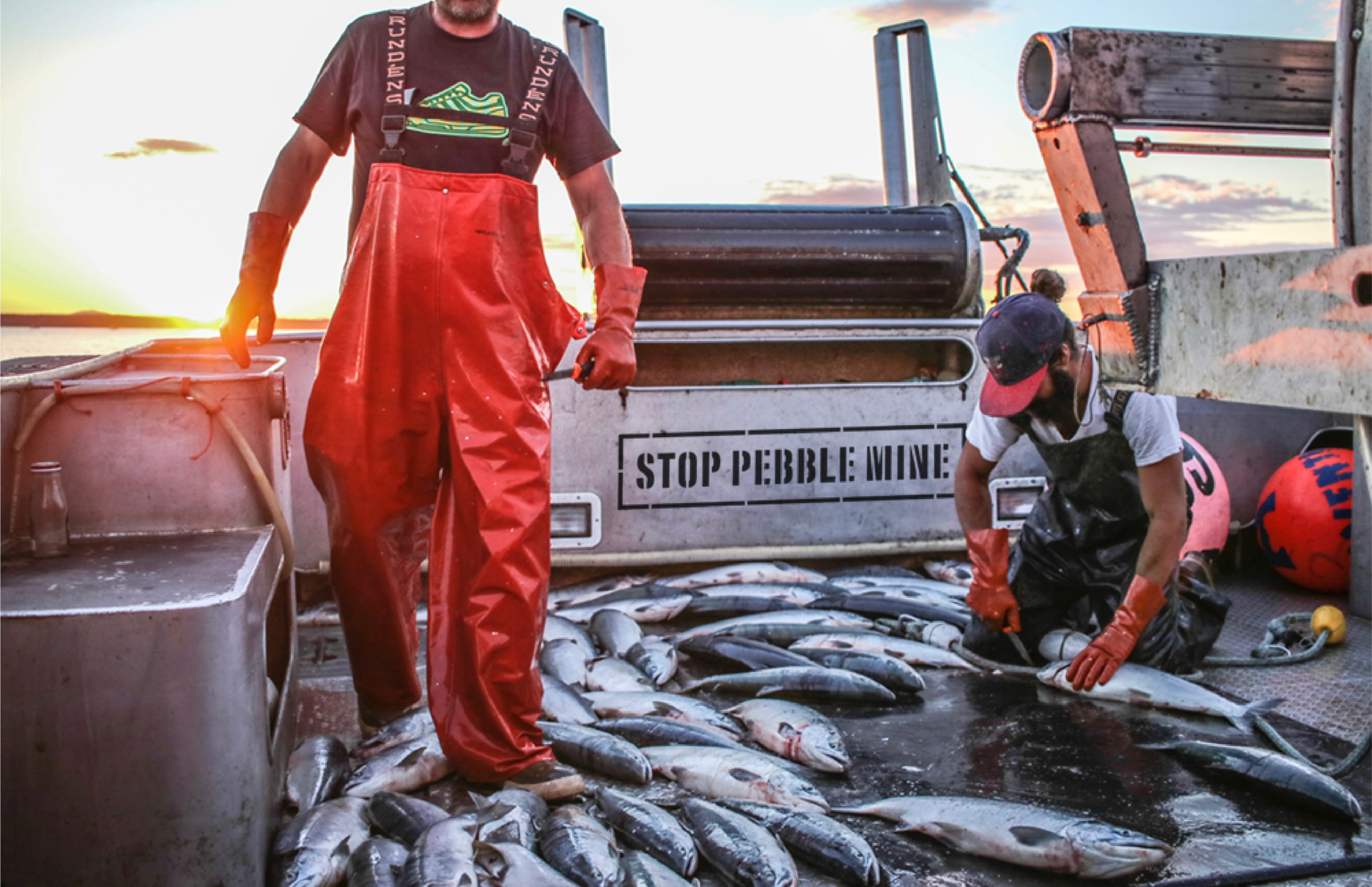
ACTIVIST TOOLKIT
Organize your own Bristol Bay event to help spread the word and build support for protecting Bristol Bay! We’ve gathered resources to help you plan and share Bristol Bay’s story with others:
PRINTABLE FACT SHEETS
ORDER BRISTOL BAY SWAG
WATCH FREE BRISTOL BAY DOCUMENTARIES
WAYS TO Take action
Find salmon recipes
BRISTOL BAY SOCKEYE SALMON FISH FINDER
SHARE YOUR BRISTOL BAY STORY
Printable Fact Sheets
Pebble Science Fact Sheets (Courtesy of www.pebblescience.org)
Order Bristol Bay Swag
Every purchase made in United Tribes of Bristol Bay’s shop helps protect Bristol Bay, our salmon and our way of life.
Watch Free Bristol Bay Documentaries
We Can’t Eat Gold: A Documentary
Living off the land, Alaska Natives defend the world's largest salmon runs against the impacts the proposed Pebble Mine. The Army Corps of Engineers will soon decide if they’ll permit Pebble Mine. Watch families fish, as we open a space for tribal elders and youth to share their ways of life.
Fish First: A Story about People and Salmon in Bristol Bay, Alaska
Fish First is a celebration of the salmon and people of Bristol Bay, Alaska. This story explores what makes Bristol Bay the most productive and well managed fishery on earth.
Red Gold: The Livelihood of Bristol Bay
The Bristol Bay salmon run attracts people from all over the globe, who work around the clock from late May until the end of July. They harvest sockeye salmon, known as "Red Gold" for the fish's deep unique color, it's sought-after flavor, and it's lucrative value to the men and women who work feverishly in the fishery.
Day in Our Bay - Full Length Feature
A community-based digital storytelling project that gives voice to Bristol Bay Native Corporation shareholders in the Bristol Bay region of Alaska.

“Wherever your home port, commercial fishermen know all too well what happens when the land, water, and habitat supporting a fishery is abused. Far too many have declined due to loss of habitat, oil spills and other environmental calamities. And we’ve also seen that billions of dollars cannot fully restore fish stocks impacted by inappropriate development. In hindsight, it’s obvious too, that efforts to restore habitat are more expensive and less effective than preventing damage in the first place.”
Robin Samuelsen – Bristol Bay resident, commercial fisherman
